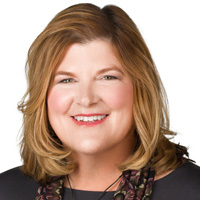Over 50? You’re a Hot Ticket in Today’s Labor Market
Shifting demographics give older workers a leading edge with employers who are looking for a strong work ethic and experience. Here are three ways to dive in.


I still remember my first meeting with a financial planner when I was in my 20s. My big plan then was to retire at 55.
Then I actually turned 55, and while I was pleased to see that my planner had indeed helped me realize my financial goals, they weren’t aligned with my life goals any longer. At age 55, I was just getting started, not winding down. I left the longtime security of a corporate job and bought my own business, advising other leaders who had been recently displaced and helping them find their own meaningful second acts.
Employers need your generational expertise
There are many people like me who found more strength, vision and purpose after age 50 than they’d ever experienced before. However, if you’re in that age range and in the market for a new job, you might be worried about everything you’ve heard about hiring managers and HR directors who avoid any résumés from older candidates. Ageism is real. But, right now, there’s a unique confluence of events that give older adults a real advantage in the job market.

Sign up for Kiplinger’s Free E-Newsletters
Profit and prosper with the best of expert advice on investing, taxes, retirement, personal finance and more - straight to your e-mail.
Profit and prosper with the best of expert advice - straight to your e-mail.
Here's why this is your time: The Great Resignation of 2021 was a triggering incident that caused many older workers to leave the workforce entirely. That excess of retirements left many companies in the vexing situation of having lost a great deal of generational expertise. Some have lost an entire layer of leadership, and now they’re scrambling to train and prepare their next generation of employees.
A new job after 50? Here are three options
That’s where you come in. The good news is that if you want to work, there are plenty of options out there. Here are three ways for older candidates to start writing a strong second chapter:
Full-time employment. If this is what you’re seeking, know that it’s entirely possible to find a new full-time role. The best way to do this is to be open to new possibilities. Let’s say you were a C-suite executive at a global firm, and you’re now looking for a new full-time job. In addition to a lateral move or a promotion to a larger company, consider smaller or boutique-sized companies that would love to have your skills and smarts. The key is staying open to opportunities as they arise and being willing to think of yourself and your talents in a new way.
Gig work. You might find that part-time work is a better fit. It all depends on what you want to do, for how long and with what level of intensity. If you consider all those factors, you’ll be able to find a balance that works for you. I call it the “combo platter” approach to a new career. It can give you a new start at meaning, variety and income after you’ve left full-time work behind.
For example, you could hang out a shingle and launch yourself as a consultant. Or you might consider contract work, either directly with a company or through a temporary services agency.
Another possibility is interim work, when companies need to fill a leadership-level position for a few months, or until they can hire and train a full-time replacement. You might even be interested in being a fractional leader. Look for smaller companies in your field that might not be able to afford you full-time, but can benefit from having you in the office several hours a week.
Become an entrepreneur. People thought I was crazy when I bought my outplacement firm at 55, but it turned out to be the best move I could possibly have made. Is there a type of business you’ve always wanted to run? You could buy out an existing owner, or you could start from the ground up and create your own empire. It’s never too late to be your own boss!
This is when your early financial planning can pay off
If you’re anything like I was in my 20s, you probably worked closely with a financial planner to ensure you’d be set up for a comfortable retirement. If you’ve already met those financial goals, you might have the freedom to let financial considerations move a few spaces down on your “requirements for a new job” list.
Maybe you want to work remotely, or closer to your home. Perhaps you’re looking to work in an industry for which you’ve always had a passion. In your new over-50 job, you can finally put those factors front-and-center.
Word of the day? Optimism
If you’re an over-50 jobseeker, trust me when I tell you that the future is bright, because market conditions make this a great time for older workers to re-enter the workforce. The recent Wall Street Journal article Bosses Want Hard Workers—So They’re Hiring Older People points out that the stronger, more dedicated work ethic of older workers is especially prized: “Certain businesses are targeting seniors on the premise that age is an asset.”
So here’s the good news: You are employable, and there are lots of different ways that employability can play out in today’s job market. If you’re anything like the rest of our generation, you have a solid work ethic, a passion for making a contribution and a lifetime of career wisdom and experience to offer.
What are you waiting for? We all need what you can bring to the table, so go out there now and make us proud!
Related Content
- Retirement Is a Journey: Do You Have the Map?
- To Create a Happy Retirement, Start With the Three Ps
- How Do You Stack Up When It Comes to Retirement?
- Will You Have a Happy Retirement (Even With Enough Money)?
- It’s Not Too Late to Save for Retirement: Five Ways to Step It Up
Profit and prosper with the best of Kiplinger's advice on investing, taxes, retirement, personal finance and much more. Delivered daily. Enter your email in the box and click Sign Me Up.

Anne deBruin Sample, CEO and owner of Navigate Forward, is an experienced HR leader and Career Transition Expert. She has written for CEOWorld magazine and has been published in Fast Company and The Wall Street Journal. Her experience includes high-level positions at PepsiAmericas, Caribou Coffee and Whirlpool Corp.
-
 Stock Market Today: S&P 500, Nasdaq Hit New Highs on Retail Sales Revival
Stock Market Today: S&P 500, Nasdaq Hit New Highs on Retail Sales RevivalStrong consumer spending and solid earnings for AI chipmaker Taiwan Semiconductor Manufacturing boosted the broad market.
-
 Higher Summer Costs: Tariffs Fuel Inflation in June
Higher Summer Costs: Tariffs Fuel Inflation in JuneTariffs Your summer holiday just got more expensive, and tariffs are partially to blame, economists say.
-
 New SALT Cap Deduction: Unlock Massive Tax Savings with Non-Grantor Trusts
New SALT Cap Deduction: Unlock Massive Tax Savings with Non-Grantor TrustsThe One Big Beautiful Bill Act's increase of the state and local tax (SALT) deduction cap creates an opportunity to use multiple non-grantor trusts to maximize deductions and enhance estate planning.
-
 Know Your ABDs? A Beginner's Guide to Medicare Basics
Know Your ABDs? A Beginner's Guide to Medicare BasicsMedicare is an alphabet soup — and the rules can be just as confusing as the terminology. Conquer the system with this beginner's guide to Parts A, B and D.
-
 I'm an Investment Adviser: Why Playing Defense Can Win the Investing Game
I'm an Investment Adviser: Why Playing Defense Can Win the Investing GameChasing large returns through gold and other alternative investments might be thrilling, but playing defensive 'small ball' with your investments can be a winning formula.
-
 Five Big Beautiful Bill Changes and How Wealthy Retirees Can Benefit
Five Big Beautiful Bill Changes and How Wealthy Retirees Can BenefitHere's how wealthy retirees can plan for the changes in the new tax legislation, including what it means for tax rates, the SALT cap, charitable giving, estate taxes and other deductions and credits.
-
 Portfolio Manager Busts Five Myths About International Investing
Portfolio Manager Busts Five Myths About International InvestingThese common misconceptions lead many investors to overlook international markets, but embracing global diversification can enhance portfolio resilience and unlock long-term growth.
-
 I'm a Financial Planner: Here Are Five Smart Moves for DIY Investors
I'm a Financial Planner: Here Are Five Smart Moves for DIY InvestorsYou'll go further as a DIY investor with a solid game plan. Here are five tips to help you put together a strategy you can rely on over the years to come.
-
 Neglecting Car Maintenance Could Cost You More Than a Repair, Especially in the Summer
Neglecting Car Maintenance Could Cost You More Than a Repair, Especially in the SummerWorn, underinflated tires and other degraded car parts can fail in extreme heat, causing accidents. If your employer is ignoring needed repairs on company cars, there's something employees can do.
-
 'Drivers License': A Wealth Strategist Helps Gen Z Hit the Road
'Drivers License': A Wealth Strategist Helps Gen Z Hit the RoadFrom student loan debt to a changing job market, this generation has some potholes to navigate. But with those challenges come opportunities.